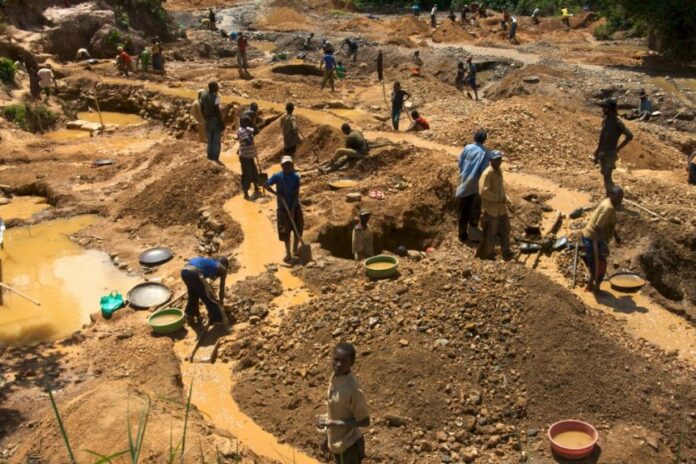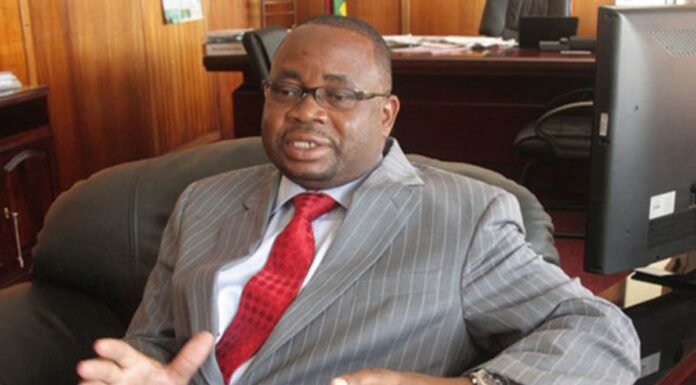Staff Writer
Legislators want government to regularize activities by artisanal and small-scale gold miners as calls continue to grow louder for authorities to curb the growing number of fatal accidents at the mines.
The MPs visited some gold mines affected by fatal accidents in November last year.
The 3rd Report of the Portfolio Committee on Mines and Mining Development on fact-finding visits to areas affected by mine accidents was presented to the National Assembly on Wednesday this week.
The legislators said the Ministry of Mines and Mining Development was failing to effectively implement its regulations including conducting regular mine inspections.
The legislators said, according to the report presented by committee chairperson, Edmond Mkaratigwa, if regular inspections were being carried out, lots of accidents ccould have been avoided.
The committee also reported that “corruption between government officials and miners” allowed miners to slip through regulations and safe regulations.
Bad attitude towards emergency response were also observed during the visits.
“Accidents have been reported as soon as they occur but the response has not been forthcoming,” the report said.
The MPs also noted that there was poor communication arguing that some of the accidents could have been avoided if there were effective communication.
“Some accidents are also occurring at old mines that have been used and closed but they have been illegally occupied.
“The miners were also found wanting by failing to produce maps showing the mining site as well as operations, a requirement which one is allowed to submit during the initial stages of getting a licence,” the report said.
The legislators said accidents were caused by unstable ground as a result of geology causing the ground to collapse, flooding as a result of surface runoff after raining in the upstream, depillaring and unplanned workings.
“It was noted with great concern the visible absence of safety mechanisms. Many of our medium and small-scale mines around the country operate without any safety plans or personnel.
“At such mines they are only worried about maximising profits, casting a blind eye of the safety and welfare of the miners, let alone the environment.
“Negligence is also another worrying factor.”
The mining sector has become the mainstay of the economy in Zimbabwe with Treasury indicating in the 2020 Mid-term Budget and Economic Review that the industry accounted for 60 percent of the country’s export receipts.
However, the legislators said, the gold sector has been saddled with a number of challenges in the past few years and of major concern has been the increasing level of mining accidents
“These accidents have been prevalent amongst unregistered artisanal and small-scale miners, and sadly the country has lost hundreds of its citizens through these accidents,” the MPs said.
There are more than one million people directly involved in artisanal and small-scale mining and the majority of them operate as unregistered miners.
The portfolio committee conducted the fact-finding visits to Premier Estate Mine (Mutare), Esigodini and Task Mines (Chegutu) between 21 and 24 November last year.
The committee observed that most of the accidents were avoidable and the responsible ministry was running away from its responsibility to respond to accidents.
It also said the ministry lacked the right staff with expertise in dealing with mining related accidents.
“The Chief Engineer in the Ministry of Mines and Mining Development seemed to be intimidated to make difficult decisions to save lives in life-threatening circumstances because he is liable to answer for anything wrong that may happen as a result of his decision and actions he authorized.
“As a result, he makes conservative decisions. There is bureaucracy in the decision-making process. The CPU on the other hand is inadequately resourced in terms of both human and equipment, to deal with related accidents and to save lives.”
“The issue of safety is actually foreign to many in the ASM whose objective is to increase output at all costs. Disused mines have been illegally occupied and operated, in some cases; such operations involved the participation of children especially during the peak of the lockdown and the school closure period exposing them to the risk of accidents.”
The MPs also said some mining accidents have been politicized and this makes rescue operations difficult for the different government agencies and private sector, which include large-scale miners.
They recommended that government establishes a Safety Fund, funded from mining operations for the purchase of or hiring of equipment to be used in mine rescue operations or retrieval of dead bodies by December 2021.
“the Ministry of Mines and Mining Development should play its role in all mining accidents in line with Statutory Instrument 109 of 1990 Mining (Management and Safety).
“This responsibility should not be delegated to other State agencies such as the Civil Protection Unit or Local Government authorities.”
The legislators called for capacitation of responsible government officials on their roles and responsibilities vis-à-vis mining accidents through periodic training.
“By January 2022, each mining district in Zimbabwe should have a rapid response unit which is adequately resourced to deal with mining accidents. The Response Unit should be coordinated by the Ministry of Mines and Mining Development.”
The Ministry of Mines and Mining Development was also urged to regularly conduct training on mining safety and regulations especially to small-scale miners starting January next year.












